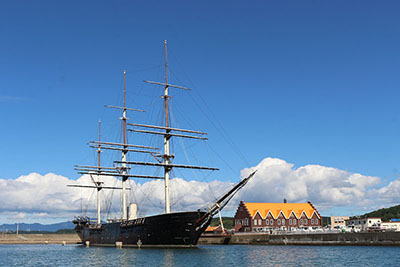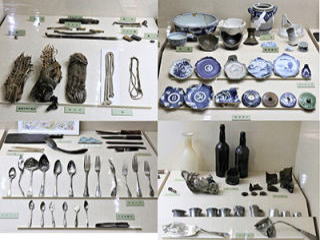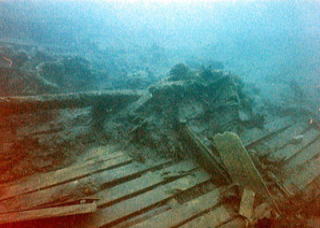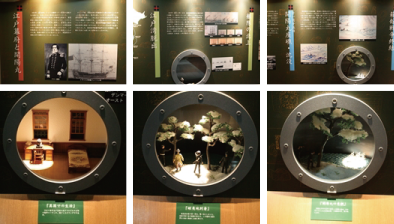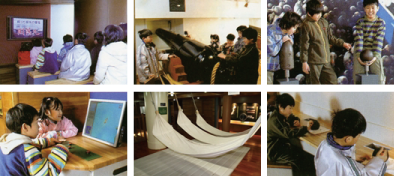Kaiyomaru Museum
Notice of Temporary Closure of the Kaiyo Maru Youth Center Administration Building and Kaiyo Maru Memorial Hall
We sincerely appreciate your continued support and patronage.
Please be advised that, due to the scheduled demolition of the Kaiyo Maru Youth Center administration building starting in November, the Kaiyo Maru Memorial Hall will also be closed during this period.
We apologize for any inconvenience this closure may cause and kindly ask for your understanding.
【Closure Period】 Scheduled from November 2025 to approximately May 2027 ※Please note that the schedule is subject to change.
【Inquiries】
Kaiyo Maru Youth Center
Tel: 0139-52-5522
Kaiyomaru Museum
| Admission fee | 500 yen for adults, 250 yen for primary / secondary / high school students (Groups of 15 or more get a 10% discount) |
|---|---|
| Openning hour | 9:00 - 17:00 (Ticket sales finish at 16:30) |
| Closing day | April–October: Open daily November–Closed Scheduled to reopen around May 2027 *Please note that the schedule is subject to change. |
| Address | 1-10, Aza Ubagamicho, Esashi, Hiyama, Hokkaido |
| TEL | +81-139-52-5522 |
About the Kaiyomaru Warship
In September, 1866 the Kaiyomaru warship was constructed to save the fate of the Tokugawa shogunate and was completed sturdy and beautiful, with the name, Kaiyo, (name of the Big Dipper in Ursa Major), and the Dutch "Voorichter" which is translated as "the break of day".
Constructed in the Netherlands, the Kaiyomaru in the closing days of the Edo period, departed Edo in October, 1868 having witnessed the battle of Toba-Fushimi, the surrender of Edo Castle, and the collapse of the Tokugawa shogunate, arriving in Ezo (Hokkaido) in December.
During the Battle of Hakodate in December, 1868, while headed to Esashi to support Toshizo Hijikata's army after losing Matsumae, it encountered a blizzard off the coast of Esashi becoming stranded and sank.
It had a lifetime of a mere 2 years and 3 months. Just over 100 years later, 32,905 relics were salvaged by underwater excavation that began in 1975. In April, 1990 the Kaiyomaru was returned to its former glory and original size after 122 years. Japan had entered the Meiji era and the 14 foreign students, including Takeaki Enomoto, who were dispatched to the Netherlands during the construction of the Kaiyomaru contributed to the modernization of Japan remarkably. Invaluable materials are on display to help visitors understand the transitions of a wide variety of techniques filled the history of these events.
Relics Brought up from the Sea
Full-Scale Underwater Archaeology
Just over 100 years from the sinking of the Kaiyomaru, the excavation of the shipwreck from the bottom of the sea which began in 1975 was begun through trial and error. The area investigated was 2.9 hectares, divided into the open sea and inland sea right under breakwater out of Esashi Port, and was a new field of challenges such as excavation, desalination processing, preservation processing, and investigation, with the committee being organized from a specialized standpoint, too. Currently, various locations have become the forerunners in full-scale underwater archaeological study of ship wreckage excavation.
Beginning as a method of investigation, the excavation of the Kaiyomaru led to repeated trials in preservation processing, the desalination process after raising items, and every other area of work. Through this, it attracted scientific attention as a highly valuable example in not only the historical materials value in the history of military affairs and the history of ships but also the field of the underwater archaeology.
Display Guide
Kaiyomaru History Display
There are panels giving detailed explanations that follow the ordering of the Kaiyomaru and its construction to it becoming stranded and sinking, as well as dioramas on display showing how it appeared at the time.
Salvaged Relics & Preservation
displays of salvaged relics, the excavation work process, and preservation methods are introduced through panels and video. Among the salvage relics are medical supplies and tableware in addition to cannons and firearms. Aside from that, there are a lot of interesting items including a secret savings case hidden by sailors.
Experience Corner
You can experience the sound of a cannon firing, a game-like ship steering simulator, preservation process experience and more. In the hammock experience, you can actually feel the sideways sway of the ship and experience how the sailors must have slept at the time.
